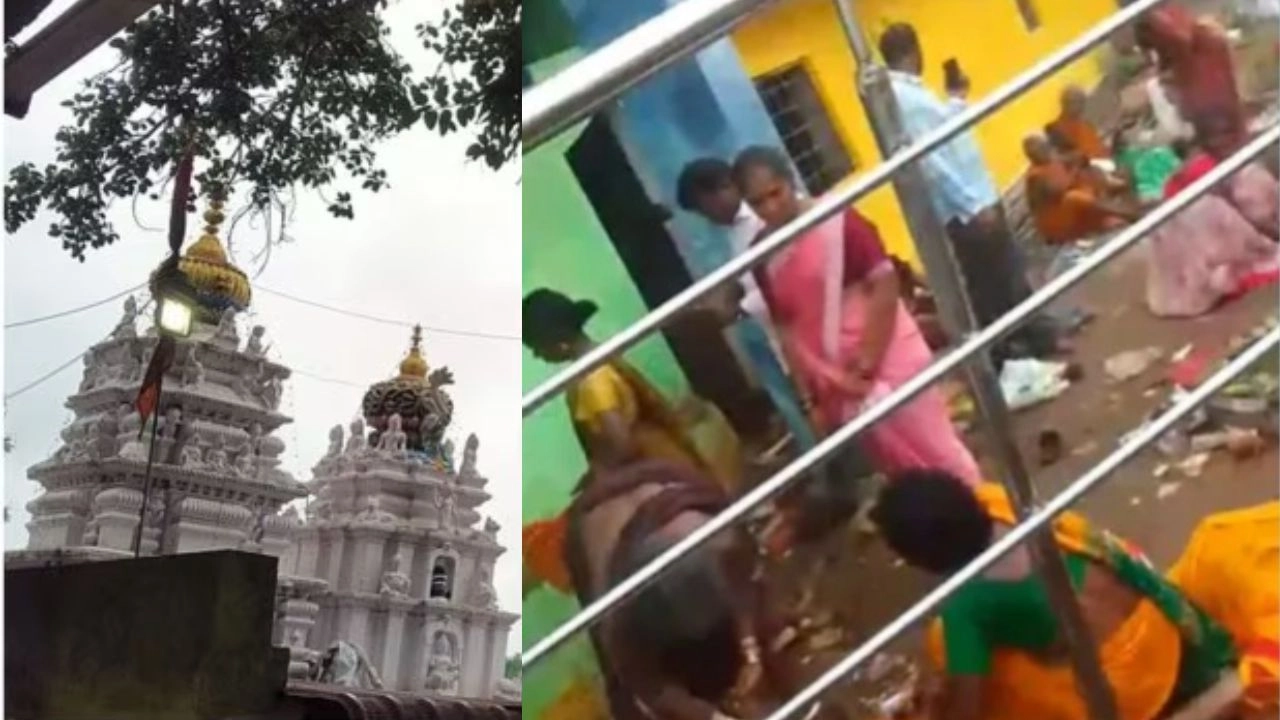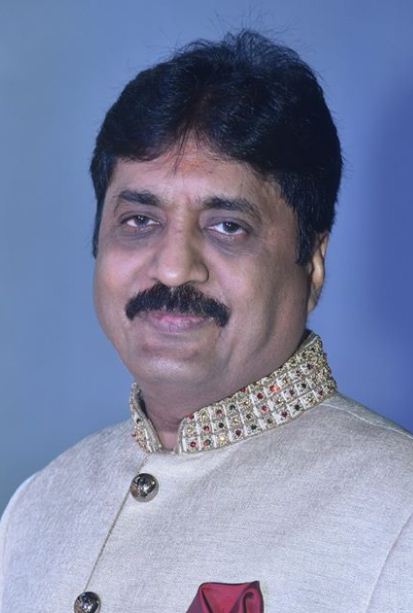
The tragic stampede at the Venkateswara Swami Temple in Srikakulam, Andhra Pradesh, which claimed several innocent lives, has once again raised deep questions about our administrative system, the sensitivity of governments, and the accountability of the authorities. Every time such a tragedy occurs, a few lives are lost, families are shattered, tears flow—and then comes the same monotonous chorus: “An inquiry has been ordered,” “Action will be taken against the guilty,” “Compensation will be provided to the victims’ families.” And soon, everything fades into the dust of forgetfulness.
The real question is—how long will we continue to suffer from this apathy, this administrative slumber, this fatal negligence, and this utterly insensitive governance? This is not the first time that such a tragedy has struck a place of worship. The painful truth is that no lessons are ever learned from past mistakes. The Srikakulam incident once again exposes the shear failure of crowd management—turning a moment of devotion into death, cries, and chaos. The official statements that followed were nothing short of adding insult to injury for the grieving families.

Religious shrines are supposed to be centers of faith and energy—places where people seek peace and solace. Yet, it is a cruel irony that these sacred spaces often turn into sites of untimely death. What happened in Srikakulam is not just an accident; it is a systemic failure. Every time a tragedy unfolds, the authorities raise their hands helplessly in the name of crowd control. There is neither adequate barricading nor proper entry and exit arrangements. The police and volunteers are too few; there is no sufficient medical aid or emergency response. Despite knowing that large crowds gather during festivals and special occasions, there is no sign of preparedness—an utter shame.
The Venkateswara Swami Temple in Srikakulam had been opened only a few months ago. The state government now claims that district officials were unaware of it—an astonishing admission of incompetence. But even that does not absolve them of responsibility. How could the local administration not notice when the number of visitors far exceeded the temple’s capacity? Both the temple management and the government are now trying to shrug off their responsibility. Hari Mukund Panda, who built the temple, claims the stampede occurred because the staircase railing broke. But that cannot be the only reason. The real issue was that devotees had no clear way to exit once panic spread—a glaring lapse in planning. The temple had just one entry and exit point. Despite the crowd swelling beyond control, the police and administration were not alerted in time. Even more shocking is Panda’s statement that “no one is responsible—it was an act of God.” In the 21st century, such an explanation is not only absurd but deeply offensive to the victims’ pain. It mocks those who lost their loved ones. This tragedy is not an isolated case—it is part of a horrifying pattern witnessed across India and around the world, where failures in crowd control and administrative indifference lead to devastating consequences.
The Srikakulam tragedy has not only exposed the cracks in our security apparatus but has also laid bare the inhuman face of governance and temple management. Every time such incidents occur, we hear promises of “strict action” and “learning lessons.” Yet nothing changes—neither the government machinery nor the public mindset. Both remain trapped in complacency and carelessness.
India continues to face global embarrassment as stampedes in public spaces keep recurring. These are not rare occurrences—unlike in many other countries, where such incidents are exceptional. From the Kumbh Mela in Prayagraj to Ayodhya, Haridwar’s Mansa Devi Temple, Sabarimala, Vaishno Devi, Pulakeshwaram, and Deoghar, numerous tragic stampedes have taken place. Shockingly, no lessons have been learned from these past disasters. In Andhra Pradesh alone, this was the third major stampede this year—after similar incidents in Tirupati (January) and Simhachalam, Visakhapatnam (April). Nationwide, over 114 people have died in stampedes this year alone. Governments repeatedly talk about “learning lessons”, but the truth is, our system has lost the capacity to learn.
Predicting large crowds during religious events is not difficult. In this technological era, we have access to CCTV, drones, digital ticketing, and crowd-sensing systems—but these tools are rarely used. Everything is left to fate in the name of faith. Until tragedy strikes, not a single official visits the temple premises. And when it does, the political ritual begins—press conferences, compensation announcements, and blame games.
This also raises a social question: has our faith become so blind that we disregard basic safety norms? Does following discipline during religious gatherings diminish our devotion? The deadly mix of blind faith, administrative laxity, and chaos must end. Governments must integrate crowd management into national policy. Every major religious site should have a permanent crowd-control mechanism—with clearly marked entry and exit routes, emergency gates, trained volunteers, medical teams, and ambulances. Local administrations should conduct regular safety drills.
Why, in the world’s most populous nation, are we still so indifferent to crowd management? It is time to strengthen the basic infrastructure, train security personnel, raise public awareness, and use modern technology effectively. What we need is not more inquiries or compensation announcements, but accountability. Which officer was negligent? Which department ignored safety protocols? Why was the crowd allowed to grow uncontrolled? Without clear answers to these questions, any investigation is a mockery of justice. The Srikakulam tragedy is another warning bell. If the governments continue to sleep, such incidents will only multiply—because while faith continues to grow, management remains stagnant. A crowd is not just a number—it is life, family, and hope. When it is crushed, it signifies not merely an accident, but a collapse of governance and humanity.
Whether it is the recent chaos at actor Thalapathy Vijay’s rally in Tamil Nadu’s Karur or the Srikakulam stampede—the same mistakes keep repeating. Instead of learning, the authorities look for ways to escape blame. It is time governments realize that crowd management is not optional—it is essential for a country like India. Announcing compensation may ease the headlines, but real justice lies in accountability and punishment for negligence. Will this cry for responsibility still fail to reach the ears of those in power? By